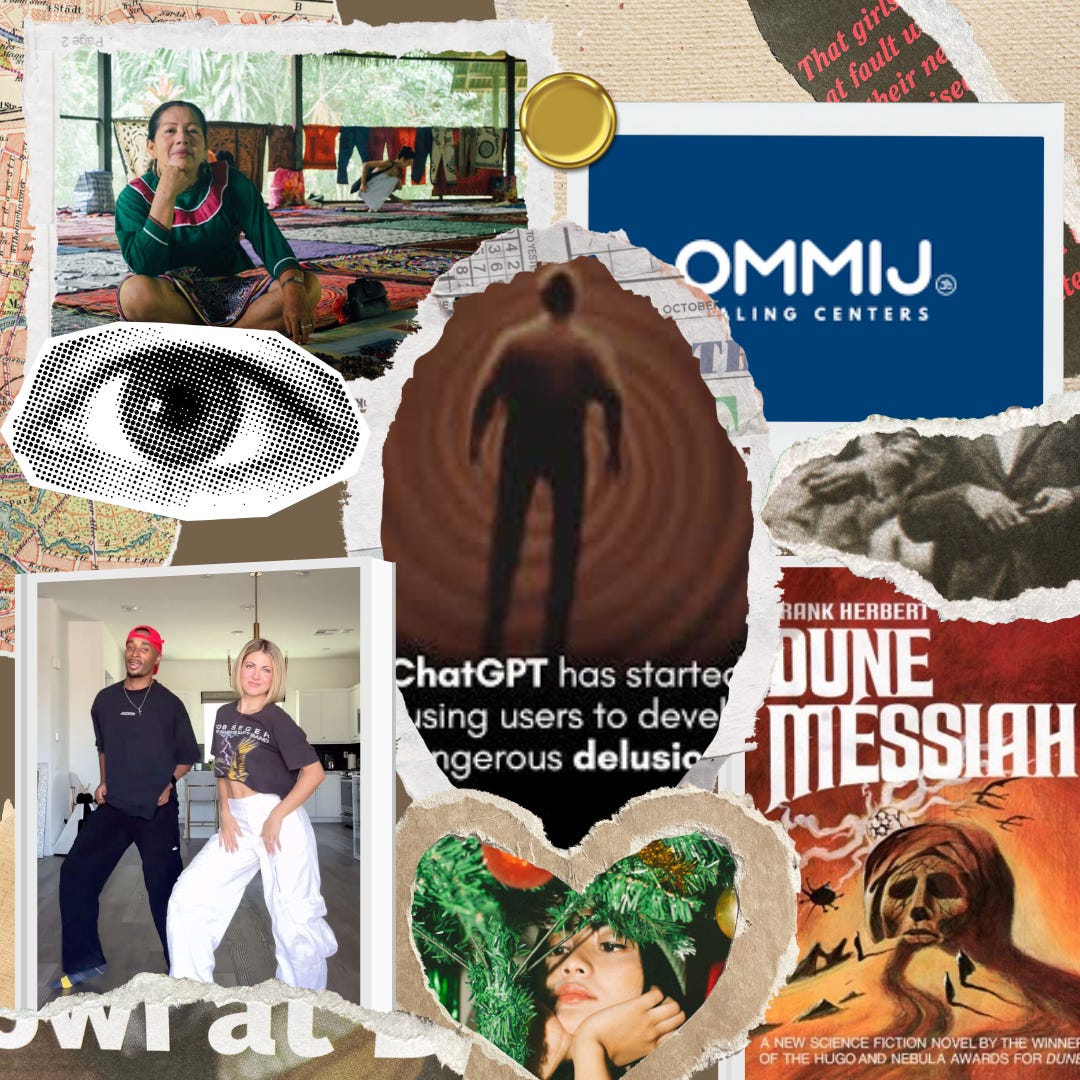Monday Brunch: ChatGPT delusions, TikTok cult, OMMIJ raided, and FOUNDERS CLUB.
Thanks for the positive responses to the Ayahuasca Foundation story. It’s extremely demanding to write such stories, in time, money and emotion. I started working on it in October 2024, almost a year ago, interviewing 20+ people for the story, including Carlos Tanner twice. I then had to pay a lawyer to review the story, I had to go over it again and again…and still, when you press publish, you feel a bit sick. Some messaged me to say they feel I went light on Don Enrique and his responsibility for issues on the ‘initiation course’. I can only report on what people tell me and what I can ascertain beyond some reasonable level of doubt. But I did say that the course happens at his centre, on his watch, and he also bears responsibility for what occurs there. Meanwhile, founder of the Foundation Carlos Tanner responded in the comments to the story, saying he takes these complaints seriously, and attendees of the course respond to his comments. A conversation that has bubbled away inside the AF community is now public - hopefully it can lead to positive changes at the Foundation and in plant medicine culture more broadly.
The story touches on the strange relationship that has emerged between wealthy western spiritual seekers and the tiny, 30,000-person Shipibo community during the last 20 years or so of the global ayahuasca boom. The once-impoverished Shipibo people must have been profoundly impacted by this influx of fabulously-wealthy western spiritual nomads worshipping maestros and maestras as cosmic wizards, turning them into their priests and idols and, sometimes, wanting to be their apprentices.
The ayahuasca gold rush must have brought extraordinary temptations of money, sex and power to these humble folk. And it must have exerted powerful pressure on their cultural identity - wealthy seekers want the maestros to be these pure, wholly-benevolent, noble savages unspoiled by modernity, who can magically heal their trauma. But at the same time, some of these maestros have become ‘rock stars’, jetting around the world to New York, LA, Tulum and Berlin. The influx of thousands of dollars to some maestros who serve the gringos must lead to envidia and division in the tribe - Don Enrique spoke of other maestros sending bad energy at him. The ayahuasca boom must be both an incredible validation of one’s tribal culture and, at the same time, a loss and devastation. One reader, who attended a US ayahuasca church inspired by Don Enrique’s family, told me: ‘I’m not sure we in the west can enter any place where the median income is less than ten dollars a day without corrupting the teachings.’
If you want to discuss this and other articles in depth, come to FOUNDERS CLUB this Saturday at 5pm UK time - this is open to Founding Members only, I’ll send out an email to all of them. Today is the last day of the July sale, with subscriptions 20% off for three more days.
After the paywall, more rumbles in the ayahuasca jungle, as OMMIJ, the largest ayahuasca company in the world, suspends retreats following a police raid. There’s a new Business Insider investigation on psychedelic training company East Institute, which took journalist Katie McBride two years to write and get published. Meanwhile, in non-psychedelic news, the idea of ‘ChatGPT delusions’ goes viral, and the pastor behind the so-called TikTok cult is raided by the FBI investigating charges of sex trafficking.



